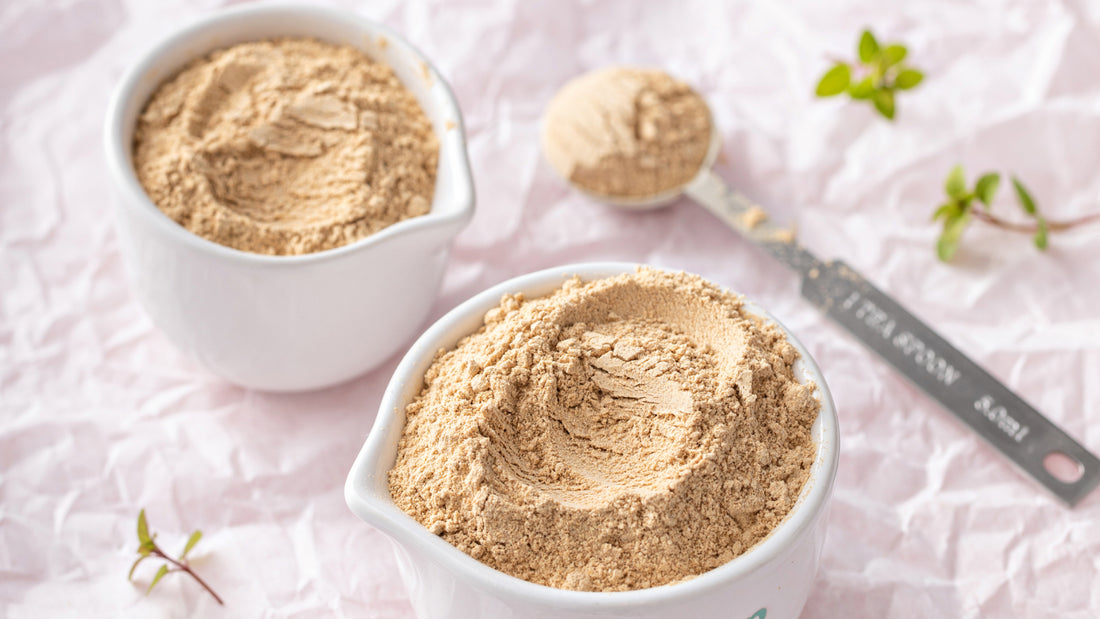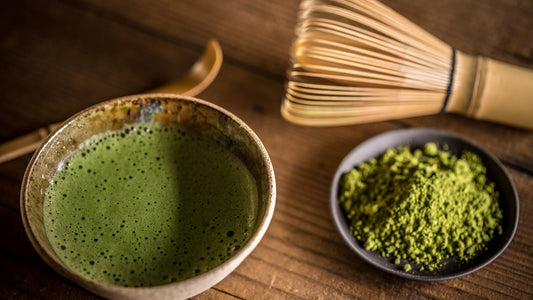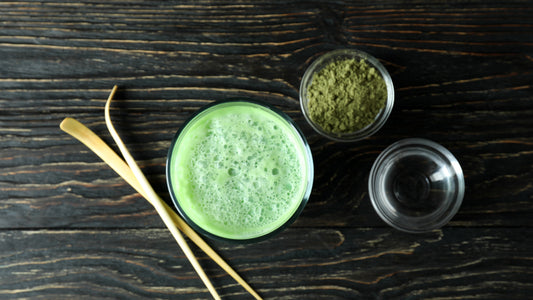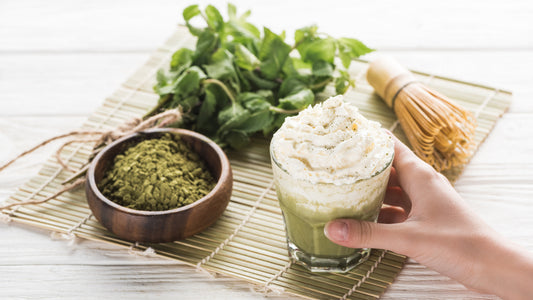Ashwagandha and maca are among the best medicinal foods, and they have been used since the olden days to promote health. These renowned herbs are known for their therapeutic properties. Whether you want relief from stress, gain energy like when you were younger, or improve your overall health, you can have it all through these herbs.
However, understanding your health objectives is crucial when selecting the right supplement for your wellness journey. Having a clear overview of these herbs can help you make the important choice of which one can be beneficial for you. So, if you are also confused between Ashwagandha and Maca Root, read on till the end to find out which one’s best for you.
What is Ashwagandha?

Ashwagandha is an ancient medicinal herb and is scientifically known as Withania somnifera. It has been used as an Ayurvedic medicine for centuries. It is also called Indian ginseng or winter cherry all around the world.
It is an evergreen shrub that grows in India, the Middle East, and some regions of Africa. The word ‘Ashwagandha’ is derived from the Sanskrit word ‘Ashva', which means horse, and ‘gandha' means smell since its root resembles the strong smell of a horse.
This plant bears yellow flowers and red fruits whose size and shape are similar to that of a raisin. It is typically the roots and the fruits which are used for medicinal purposes. Several bioactive compounds like alkaloids, flavonoids and withanolides are found in Ashwagandha.
Ashwagandha: Health Benefits
The traditional use of Ashwagandha and scientific research has shown that it has a lot of health benefits. Here are a few of those benefits:
Stress and Anxiety Reduction
Compounds like withanolides found in Ashwagandha are known to be therapeutic. It is also known for its adaptogenic properties, which reduce anxiety and stress, as seen in clinical studies. It lowers cortisol levels and enhances GABA activity, which promotes relaxation.
Anti-inflammatory and Antioxidant Properties
The withanolides found in Ashwagandha also contribute to reducing inflammation by inhibiting pro-inflammatory cytokines. It also shields cells from oxidative damage by acting as a free radical neutralizer through its antioxidant properties.
Enhanced Fertility
Ashwagandha can enhance fertility, particularly in men. Studies suggest that Ashwagandha can also improve sperm quality, count, and motility. In addition, it is believed that it also raises testosterone levels while at the same time ensuring that there is no oxidative stress in the reproductive system.
Regulated blood sugar levels
Ashwagandha might be beneficial for controlling blood sugar levels. Research indicates that it improves insulin sensitivity, hence lowering blood sugar levels in people with diabetes. Some compounds such as withanolides, withaferin, and flavonoids found in this herb can enhance glucose metabolism and reduce insulin resistance.
Safety Precautions while taking Ashwagandha
Ashwagandha is a completely safe herb, but it can sometimes affect people with underlying health conditions, which is pretty rare. Here are a few of those conditions for you to keep in mind:
Thyroid Disorders
The use of Ashwagandha can influence thyroid hormone levels. Therefore, it can cause problems if you already have thyroid issues.
Gastrointestinal Problems
Some people experience side effects such as an upset stomach, nausea, or other gastrointestinal problems.
Autoimmune Conditions
Ashwagandha can stimulate the immune system, which might make autoimmune conditions worse.
What is Maca Root?

Maca root is a Peruvian plant which has been used for centuries in traditional medicine. It is scientifically known as Lepidium meyenii and is found in the Andes Mountains of Peru. It belongs to the brassica family, which includes broccoli and cabbage.
The taste of maca root is unique but has been depicted as nutty or caramel-like. It is typically consumed in powder form. It grows in hostile conditions at high altitudes; hence, it is considered a tough plant. The root is not large in size. It is small and round and almost looks like a radish.
Maca Root: Health Benefits
There are several health benefits of maca root, which have been reassured by traditional use and scientific research. Here are a few of these:
Enhanced Energy and Stamina
Maca root provides essential nutrients to the body to increase energy and stamina. It acts like an adaptogen and helps manage stress. Studies have shown that it improves physical performance and reduces fatigue.
Hormonal Balance
Studies suggest that Maca root regulates hormonal levels ɓy, affecting the endocrine system. It reduces menopause symptoms such as irregular periods and mood swings.
Bone Health
Maca root has rich nutrients such as calcium, which are essential for bone density and strength. Some studies suggest that it can also protect against osteoporosis, a disorder that makes bones weak and brittle, making them prone to fractures.
Skin Health
Maca Root has antioxidants that protect it from oxidative stress and support hormonal balance. All this can help reduce acne and improve skin texture. Maca root powder and essence are also used in skincare products.
Safety Precautions while taking Maca Root
When taking Maca root, it is important to remember that you can only ensure its safe and successful use by taking precautions and being careful.
Before taking maca root, consult with your doctor about your health problems if you have any. Try taking it in small doses to get used to it. Avoid taking maca if you are pregnant or breastfeeding since not much research has been done about it.
It is best to take maca root during the daytime since its energizing properties can interfere with your sleep. However, these are not very common symptoms and rarely happen to people with certain conditions. Here are a few of those conditions:
1. Pre-existing Conditions
Maca root can affect your pre-existing conditions such as thyroid or other chronic illnesses.
2. Hormone Sensitive Conditions
As discussed earlier, maca can influence hormonal levels, which can cause conditions like PCOS or endometriosis, and it can also change your menstrual cycle.
3. Insomnia
Although maca root can be tolerated by most, maca root's adaptogen properties can cause insomnia to some.
Ashwagandha vs. Maca Root
Here are some key differences between maca root and Ashwagandha:
| Features | Ashwagandha | Maca Root |
|---|---|---|
| Origin | It grows in dry regions. Found in India, the Middle East, and Africa. | It grows in high altitudes, typically over 4000 meters in the Andes Mountains of Peru. |
| Culinary Use | Since it is bitter and earthy in taste, it is rarely used for cooking. It is mostly used for medicinal purposes. | It has a nutty, slightly sweet, and earthy flavor, which makes it great to add to baked goods and smoothies. Also used as a flavoring in beverages. |
| Nutritional Profile | It is rich in iron, alkaloids and withanolides. | It is rich in vitamins B, C, and E and minerals like iron, calcium, potassium, amino acids, and fiber. |
| Availability and Cost | It is widely available, and prices depend on its form and quality. | Widely available, slightly more expensive due to its exotic origins. |
Both maca and Ashwagandha have significant health benefits, although their effects and applications vary. They both are rich in minerals and can help you in the long run. It can be difficult trying to choose between these two herbs, but the good part is you don't have to choose between them. You can incorporate them both into your diet. Keep reading to find out how.
How to Incorporate Them in Your Routine?
Adding Ashwagandha and Maca together to your daily routine is easy and flexible, thus helping you benefit from them in a way that fits your way of living. Here are a few ways to incorporate them:
1. Mushroom Matcha
Mushroom Matcha is a delicious way to incorporate both Ashwagandha and maca root together. This unique blend of Japanese tea with mushrooms and other ingredients like Ashwagandha and maca gives off a nutty flavor. It is a delicious drink that will keep you relaxed and focused all throughout the day. It is made with organic ingredients.
2. Smoothie
Adding ½ teaspoon of each maca and ashwagandha powder into your morning smoothie of choice can give you an all-in-one energy drink and keep you refreshed all day.
3. Homemade Energy Bars
Incorporate maca powder and Ashwagandha powder with oats, nuts, seeds, and sweeteners such as honey or dates to make a delicious ready-to-eat energy bar. It can also be stored and eaten whenever you wish to.
4. Supplements
Take capsules or tablets of Ashwagandha and maca root to benefit from both of its effects. Use maca in the morning for energy-giving benefits, and use Ashwagandha in the evening for relaxation.
Conclusion
Maca root and Ashwagandha can both be beneficial for you in every way. Whether you choose maca or Ashwagandha or both completely depends on you, and you wouldn't even lose any beneficial properties. If you want to have a healthy lifestyle, give them both a try.
However, before taking them, remember to test for allergies or other symptoms you might get from your underlying health conditions. Start with smaller doses in the beginning and slowly increase your consumption to have a safe experience. Avoid consuming too much.
As popular as these two plants are, it is important to remember that you must only buy from trusted websites to avoid any complications with their quality. Mush Mouth is a great website which has also been approved by the FDA. Their Mushroom Matcha is a delicious blend of ingredients that also has Ashwagandha and maca root, so you must give it a try. Their products are tested in a third-party lab for quality and purity to ensure good health for you.
FAQs - Frequently Asked Questions
Q1. Can I take maca and ashwagandha together?
Yes, you can take maca root and Ashwagandha together, as they complement each other very well. While maca helps boost energy levels and stamina, Ashwagandha helps relax and reduce stress.
Q2. Is maca root and Ashwagandha the same?
No, maca root and Ashwagandha are not the same. Maca is an energy-restoring herb, while Ashwagandha provides relaxation and relieves stress. Since they both have medicinal benefits, you can take them together to have a healthier lifestyle.
Q3. What happens if you take maca root every day?
Taking maca root every day can be beneficial. It will keep you energetic all throughout the day and improve sexual health and fertility. It can also help with mood improvement and reduce menopause symptoms in the long run.
Q4. Does Ashwagandha lower testosterone?
No, Ashwagandha does not lower testosterone. In fact, it increases testosterone levels in men and improves sexual functioning. Additionally, it also improves sperm count, quality, and motility, thus helping men with infertility.
Q5. Is Maca safe for the long term?
Yes, maca is a very safe herb for long-term use, but only when taken properly. It is important to use proper dosage for beneficial effects and look out for underlying conditions and any kind of allergic reactions or side effects.




